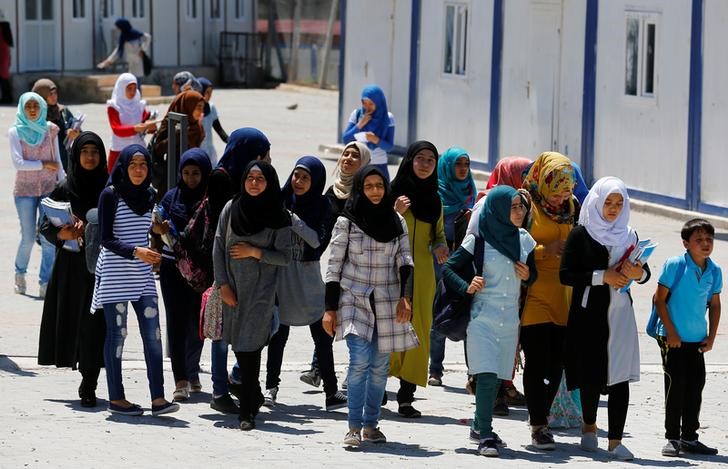GENEVA (Reuters) - The United Nations refugee agency called on European Union states on Monday not to send Middle Eastern and African asylum seekers back to Hungary for assessment until that country amends its new law on detaining migrants at the border.
Prime Minister Viktor Orban, who has called mass migration a threat to Europe's socioeconomic make-up and a "Trojan horse for terrorism", has defended the policy that went into effect on March 28. Hungary has been a focal point for Europe's migration crisis since 2015.
"The situation for asylum-seekers in Hungary, which was already of deep concern to UNHCR, has only gotten worse since the new law introducing mandatory detention for asylum-seekers came into effect," Filippo Grandi, U.N. High Commissioner for Refugees, said in a statement.
The EU's so-called Dublin regime, based on the Dublin Convention signed in the Irish capital in 1990, allows EU states to return refugees to the first safe country they reached on their flight to the bloc.
Grandi urged states to "suspend any Dublin transfer of asylum-seekers to this country until the Hungarian authorities bring their practices and policies in line with European and international law".
The European Commission has said that Hungary must ensure that its new policy of detaining migrants does not break EU rules on protecting people in need of asylum.
"Since it came into force on 28 March, new asylum-seekers, including children, are detained in shipping containers surrounded by high razor fences at the border for the entire length of their asylum procedures," the U.N. High Commissioner for Refugees (UNHCR) said.
As of last Friday, 110 people, including four unaccompanied children and children with their families, were held there, it said.
"While acknowledging the authorities’ recent efforts to address police violence, we remain very concerned about highly disturbing reports of serious incidents of ill-treatment and violence against people crossing the border into Hungary, including by State agents," Grandi said.
